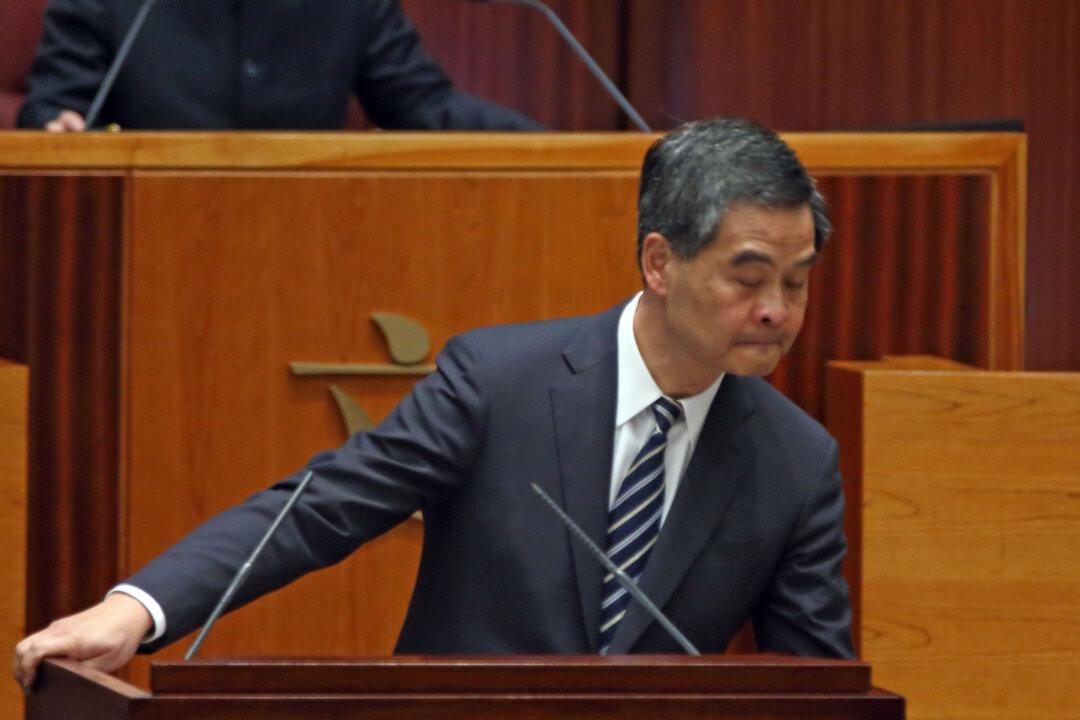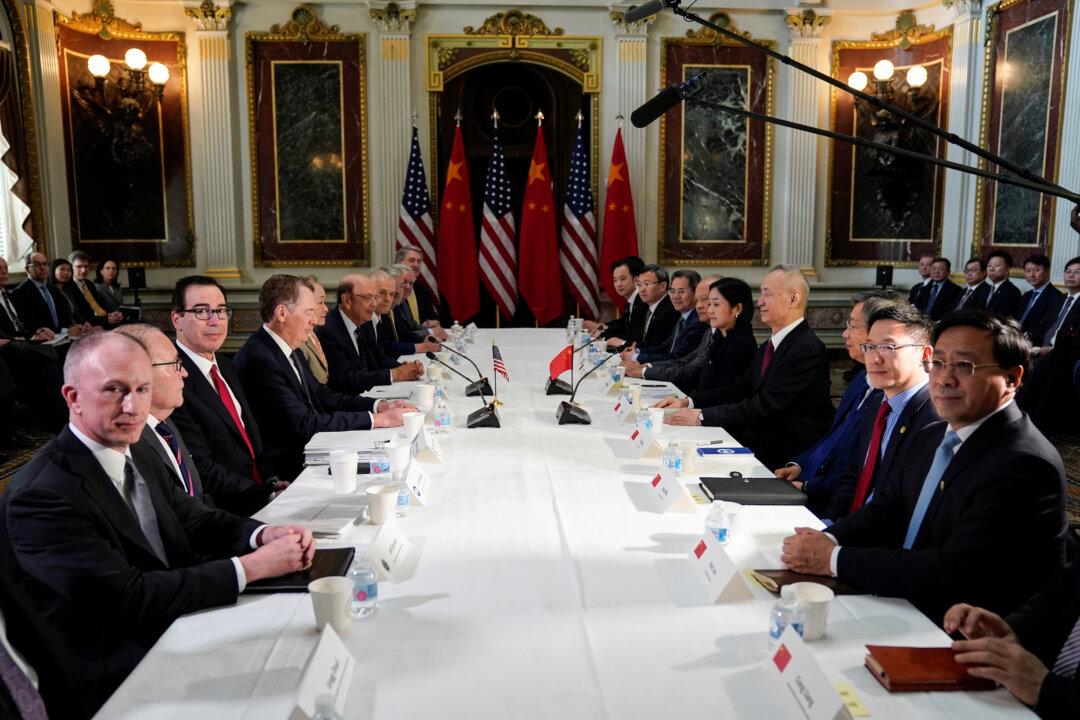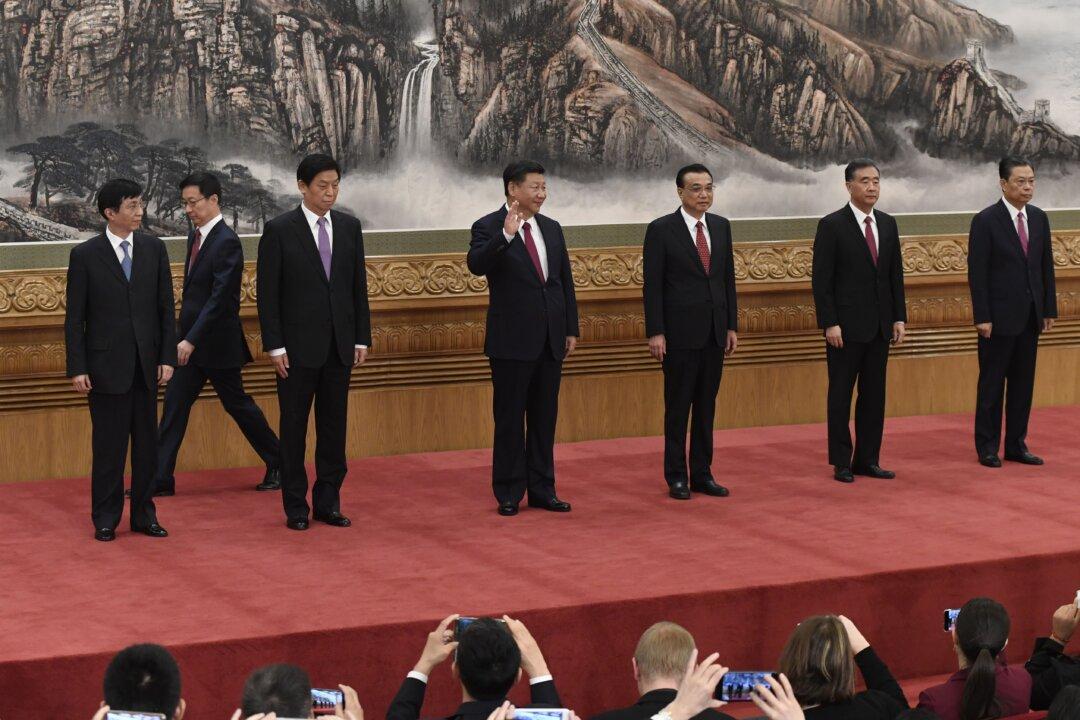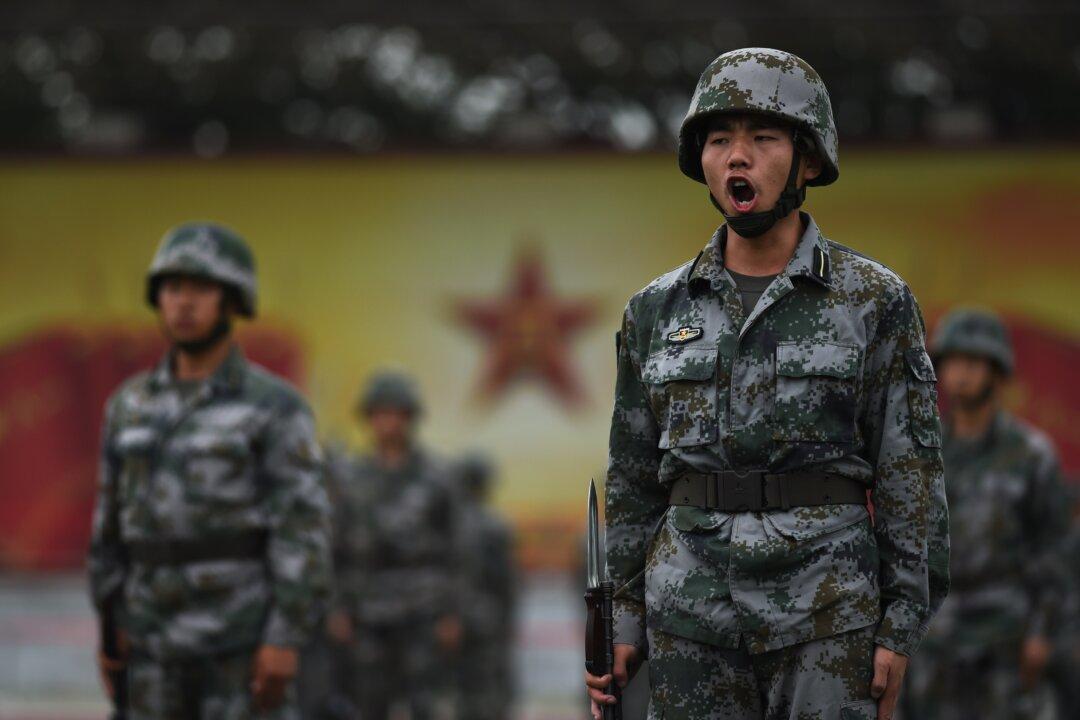The fight for Hong Kong’s next term of chief executive, due November 2016, has become the most concerned social issue.
The fact that current Chief Executive Leung Chun-ying has not indicated whether he would seek re-election in the so-called “election” is a sign that Beijing remains undecided.
Looking at past practice of mainland China politics, it means that the central government does not trust Leung.
Recently, Tsang Yok-sing, a traditional leftist, argued in a television interview that Beijing would “no longer handpick” the next chief executive candidates, and would let the people decide for themselves. It is no surprise that the public is skeptical about this argument, because this has never been the practice of Chinese politics- such sudden relinquishment of power politely and magnanimously is incredulous.
When asked whether he would participate in the election, Tsang replied ambiguously that “[there will be] a good show in September”, an indication that the traditional supporters of the establishment disapprove of Leung’s governance. In the past, Tsang was repeatedly asked whether he would run for the election, he once mentioned that he would consider participation “if Leung runs for re-election”. Could there be any accusation in these 2 replies, many wonder.
Mainland China is an authoritarian regime with the political hallmark of total manipulation and leaving no room unfettered. Over the past 6 decades or so, Beijing leaders have upheld the political principle of “pre-empt for success or embrace failure”.
With only 2 months to the nomination of the election and about half a year to the “election”, this lack of a prepared solution is a clear sign of Beijing government’s vacillating and indecisive attitude.
Over the past 2 years, Xi Jinping’s anti-corruption campaign has convicted powerful figures of the previous 2 generations, removed over 20 first tier provincial level leaders, and replaced several high-positioned personnel in the army and police force, highlighting a policy of strict grasp of power at all political levels. Putting things in context, it is inconceivable that the central government will give a free hand to the election of the chief executive of such a strategically important economy as Hong Kong. Hence, the most plausible explanation is that Xi is highly distrustful of Leung and displeased with his performance but has not found a suitable replacement.
Today’s Beijing power elites want to create a “modern society” but do not want to follow the West, leading to their denial and criticism of the universal values of human rights and free elections. Yet, even by the standards of the ancient Chinese politics, one has to rule with the principle of openness, fairness and justice. Old sayings such as “politics is righteousness”, “ruling a big country is like cooking a small fish”, “Run a country with clear, righteous principles; fight a battle with hidden, unconventional strategies” and others emphasize on this principle. In ancient politics, the emperor did not appoint crucial local officials as he wished, but selected the candidate from among the scholars who went through a fair and open imperial examination.
Historians are of the view that the ancient Chinese political system is legalism built upon Confucianism. My understanding is that the moral standards and philosophical works of Confucianism are the self-requirement guidance of the rulers, whereas the law and regulations are the constraints as well as commitments to the commoners.
During the warring-state era, Shang Yang, an official of the Qin state, erected a piece of wood in the southern gate of the city, claiming that whoever moved the wood to the northern gate would be rewarded with 50 units of gold - too high a pay for such as easy task, many doubted. However, when someone finally moved the wood to the northern gate, he was rewarded as promised. What Shang Yang sought to achieve was to enhance the government’s credibility in the heart of the people, making it known that the ruler would rule by law and deliver as promised.
Therefore, whatever Beijing government chooses to adopt, be it the “universal values” or the so-called “Chinese characteristic” system, delivering on the promise of rule of Hong Kong by Hong Kongers is the crux to the relationship of central government and Hong Kong.
Ruling a country is about winning the hearts of the people. For Beijing, removing the current Chief Executive to pacify the people of Hong Kong appears to be the definitive choice.
Zang Shan is an international affairs analyst specializing in US and China affairs.




